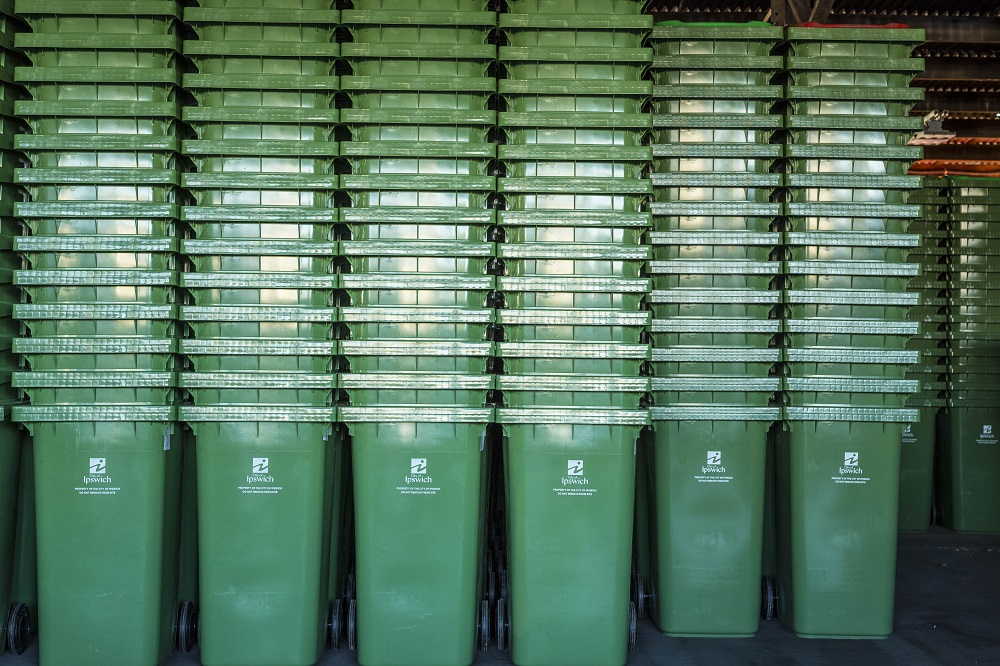Ipswich City Council has been successful with a court order requiring a waste management company to improve its onsite practices.
Council had filed an originating application in the Planning and Environment court against Nugrow at Swanbank.
Council sought a declaration that Nugrow carried out works on its site which constitute a development offence.
Council contended that Nugrow filled in a number of leachate and stormwater ponds and built structures without seeking approval from council.
The absence of the stormwater ponds is likely to lead to an increase in discharge and associated adverse downstream flooding impacts on adjacent properties during significant rainfall events; and result in adverse impacts in terms of water quality.
Council sought an enforcement order to have the ponds re-instated as a priority given that it is forecast for a La Niña weather pattern over the coming months.
Judge Michael Rackemann yesterday ordered Nugrow to perform some tasks on site and prepare a management plan.
The brief document stated that Nugrow must by 31 December 2020:
- complete the excavation of temporary sediment and stormwater
- cut collection drains and temporary leachate sumps to collect runoff and leachate from open air windrow areas that contain unstabilised product, including disposal capacity once full.
Judge Rackemann ordered a court review of the matter in early 2021.
While this enforcement action has been taken by council as part of its newly adopted Waste and Circular Economy Transformation Directive, in the future, council expects a more proactive and collaborative approach by industry to: avoid non-compliance and associated risks, define best practice and ensure residents and the environment remain protected.
“Council is obliged to hold waste operators to account and take all appropriate action to ensure companies act within the law and in the best interest of the community,” Mayor Teresa Harding said.
“Council is committed to taking leadership to deliver better outcomes for our residents on waste. We are using the full power of council’s policy and legal instruments to drive performance improvements of waste management operations within our communities, and we are monitoring and enforcing approval conditions with greater diligence.”
Councillors recently backed a new strategic and operational approach to managing and influencing systemic changes across waste, resource recovery and the circular economy, to deliver better outcomes for the city and its residents towards 2030.
The powerful Growth, Infrastructure and Waste Committee voted unanimously to support a notice of motion tabled by Deputy Mayor Marnie Doyle and seconded by Councillor Andrew Fechner to adopt the Waste and Circular Economy Transformation Directive.
This new directive marks a significant and positive step forward on waste industry impacts and opportunities for the Ipswich local government area, which disposes a large proportion of South East Queensland’s and the State’s waste (55 per cent and 42 per cent respectively in 2019-20).
The directive details the myriad of challenges currently faced by council in dealing with the growing sector. It outlines 10 guiding principles that will inform council’s strategic and operational activities over the coming years and provides a platform for a concerted and coordinated effort across waste, resource recovery, recycling and the circular economy.
Mayor Harding, chair of the Growth, Infrastructure and Waste Committee, said she looked forward to seeing the Waste and Circular Economy Transformation Directive translate into positive outcomes for the people of Ipswich, who had been impacted for decades by previous poor decisions on waste management.
Council has already commenced proactive legal measures against other waste and landfill companies with some success and will continue to do so with the health and welfare of residents of Ipswich a first priority.
“Waste disposal issues in our region are long-running and well known to our stakeholders. At the same time, the evidence base is building for the economic and environmental benefits of the circular economy model,” Mayor Harding said.
“Our directive signals that it’s time for all stakeholders to take action. Council is willing and ready to collaborate, but other levels of government and industry need to step-up if we are to address the impacts and opportunities of the waste industry’s operations once and for all.”
Read More
>>>Ipswich leads the way with landmark waste and circular economy directive

